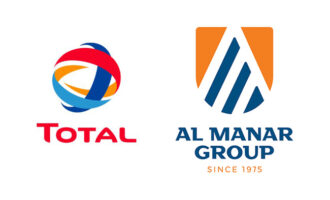
Ricardo study highlights lubricants’ contribution to reducing vehicle CO2 emissions in Europe
ATIEL, the technical association representing manufacturers and marketers in the European lubricants industry, has released the results of a study into the contribution of engine lubricants to improved vehicle fuel economy and lower CO2 emissions.
The study, produced by independent global engineering & environmental consultancy Ricardo, highlights both the direct and indirect impact advanced lubricants can have across the automotive transport sector.
Their ability to deliver improvements in mechanical efficiency (reduced friction) has made a significant direct contribution to reduced emissions, including CO2 emissions. The less engine friction, the less energy is required to move the car, the less fuel is burned. Consequently, fewer emissions are created.
Indirectly, many engine design changes such as downsizing or adoption of emissions control devices (catalytic converters) would not be viable without significant changes in lubricant chemistry. Lubricant technology has evolved to accommodate these changes, often addressing competing technical demands, while continuing to deliver the same levels of fundamental lubricant performance.
Impact on emissions
Through its expertise in engineering impacts and modelling, together with a robust database of European engines and vehicles, Ricardo has been able to calculate the impact of lubricant innovation on CO2 emissions reduction across the entire European vehicle fleet.
It estimates that the direct benefit from engine lubricant technologies will deliver 1.2–3.9 Mt CO2 e per year of avoided emissions in 2020 (compared to 2005 lubricant technology) and will continue to reduce emissions by a further 0.9–2.7 Mt CO2 e per year by 2030.
When indirect benefits are also considered, total avoided emissions have been estimated to be 17.8–33.4 Mt CO2 e per year in 2020 and additional reductions could reach 6.0–9.0 Mt CO2 e per year by 2030.
The Ricardo modelling suggests lubricants have delivered an important portion of the decarbonisation of the EU; avoided emissions account for 2.2 up to 4.1% of reduction per year in road transport CO2 emissions to 2020. The expectation is this could lead to an additional 1.0–1.3% reduction by 2030.
The resulting cost savings from direct and lubricant-enabled improvements to vehicle efficiency have been estimated to result in average annual cost savings per vehicle reaching EUR37–67 (USD41.47-75.09) per year for passenger cars and EUR720–1,282 (USD806.95-1,436.82) per year for heavy trucks by 2020.
Marco Digioia, ATIEL president, says: “We are proud of the contribution of lubricants, and the innovative technologies developed by our members, to CO2 reduction in Europe’s transport sector. Our industry continues to invest significantly in further research in this area in order that we can help drive and shape its transition into a competitive low-carbon economy.”









